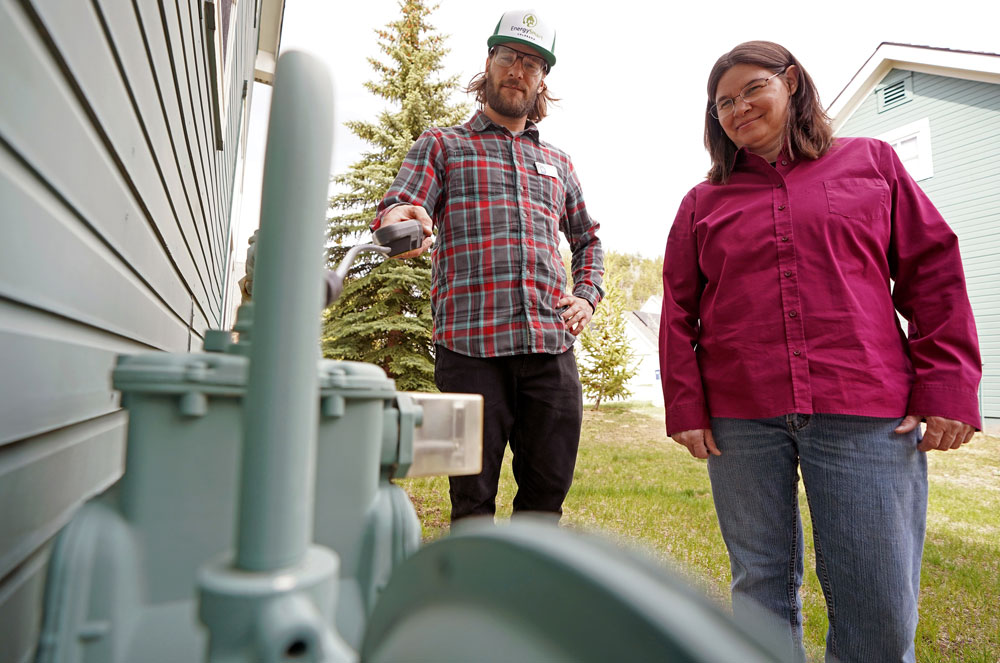
- Vitalii Homon
- July 6, 2021
- Ask Eartha
Dear Eartha, I’ve been having huge energy bills over the last few months. The strange thing is that I’ve had my heat off since mid-April. According to my energy bill, the majority of my costs are on the gas side, not electric. What is going on!?
This very question pinged into my inbox around noon on a typical mid-week day in early June. The inquiry had come from an old customer on one of those hot days, in a long streak of hot days. I was sure there was something awry, as the weather permitted windows wide open and cold showers – anything but a heating system cranking away. Luckily, I had availability to get out to the home that same afternoon. You see, I had a sneaking suspicion that a common spring-time trend was at play, and that I needed to confirm things as soon as possible.
So I hopped in my car and took off for the Wellington neighborhood home in question. After confirming the heating system for the home was in fact off, and the water heater was operating correctly, I headed outside to confirm my suspicions. With a gas detector in my hand, I thoroughly probed the gas meter outside for any indication of a leak. Grazing every square inch of the pipes leading to and from the meter, I eventually found a significant leak. The leak had sent my alarm off, alerting the homeowner inside that something had been found. As she came outside, I showed the homeowner where the leak was and explained that the leak was beyond the meter. Essentially, when gas comes from the street into your home, it passes through a meter to read how much gas your household consumes in a given month. With the homeowner’s gas costs drastically rising since spring, I figured the leak would be ‘past the meter’, or somewhere between the meter and her heating equipment in the home. Ultimately, because she would be getting charged for any gas passing through the meter, and in this case leaking beyond, I figured this would be a major factor influencing her increased heating costs.
Safety

The Wellington home gas leak was fixed the same day after a quick call to Xcel Energy. When it comes to gas leaks they don’t mess around and typically show up within a half-hour to resolve the issue. Fixing the Wellington Leak had ultimately saved the homeowner substantial money, but luckily it hadn’t posed a significant threat. When a gas leak is present within a home, the situation can be quite different. In a well-built, air-tight home, any gas leak could accumulate and fill the home or some of its rooms with combustible gas. While our homes are full of carbon monoxide alarms to protect us from this odorless lethal gas, we oftentimes have no detectors or alarms in place for combustible gases like propane and natural gas. For this reason, these combustible gases have been treated with a detectable odor to aid humans in sniffing out a leak or an abundance of gas in their homes. Although sometimes this doesn’t always work out. Remember the Breckenridge home that exploded from a gas leak in 2019? Two people were in the home as it filled with combustible gas and eventually exploded before they detected something awry. This June I entered a home with the owner out-of-state and my alarm immediately began alerting me to a presence of gas that I couldn’t smell. Nonetheless, the authorities were contacted, and the gas was shut off to the building before that lingering gas had a chance to worsen and find an ignition source.
Spring-Time is Leak-Time
As a home-energy specialist, every year between April and June, I enter homes with a heightened sense of awareness regarding gas leaks. The reason is, I always end up finding the most leaks during this time of year. In 2021, over 20% of the homes I had visited during these spring months had a gas leak somewhere on premises. Every leak got resolved and the homeowners were grateful I always include that service as part of my procedure. Through the freeze-thaw cycle, and snow or ice accumulation on or around exterior gas meters, leaks are more probable to arise and present themselves in the springtime.
If you’re interested in taking the first step towards improving the health and safety of your home environment, contact the High Country Conservation Center to better understand what your opportunities are. Through a home energy assessment, our team of energy experts can diagnose potential health concerns within your home and surprise you with a deeper understanding of how your home works as a system. You’ll gain a deeper appreciation for the things your home does to keep you comfortable and safe and may also uncover some opportunities to improve how your performs for you.
